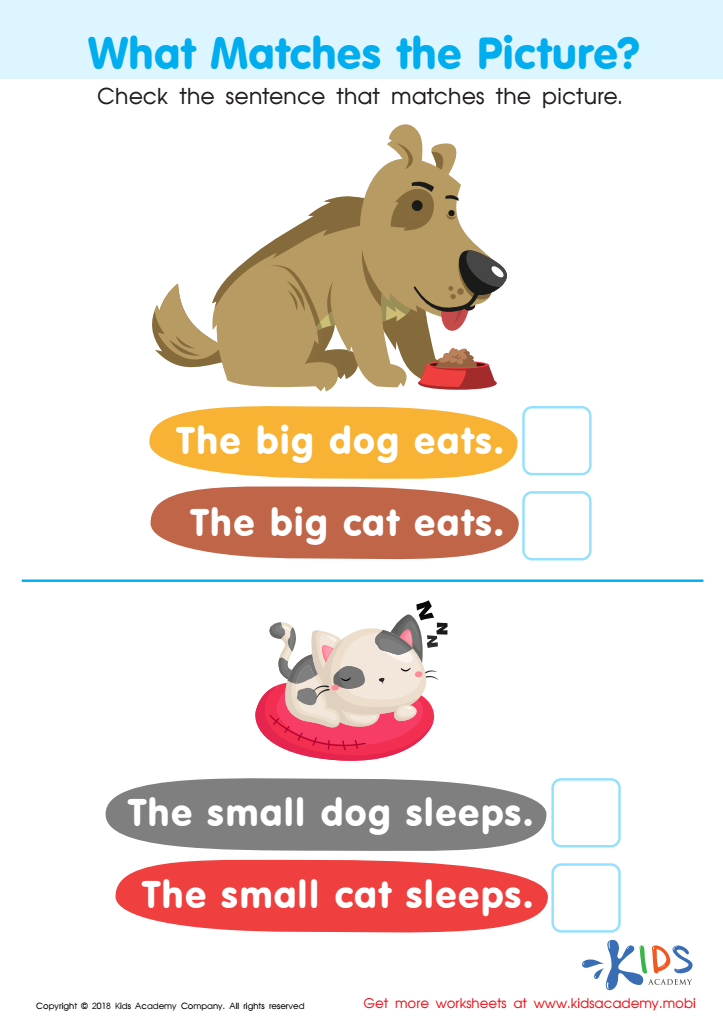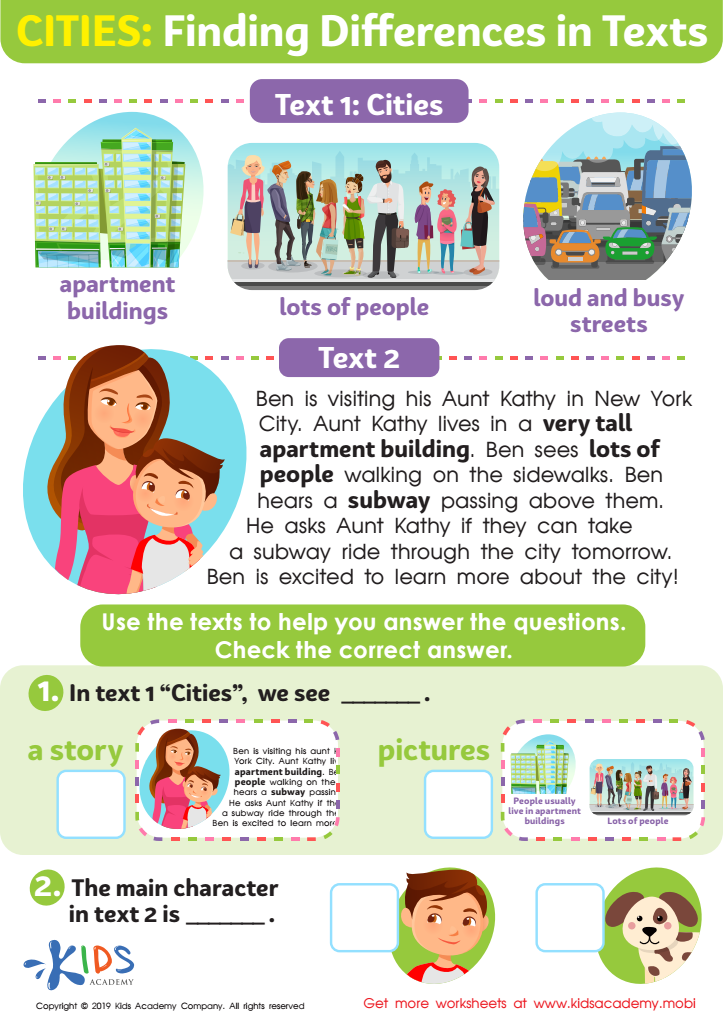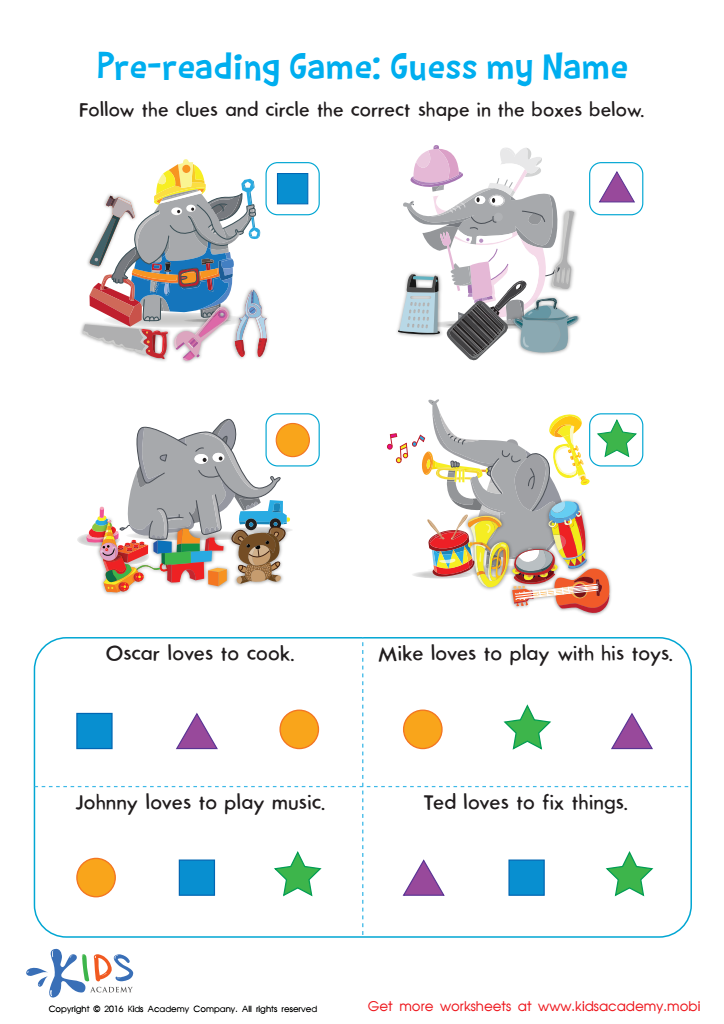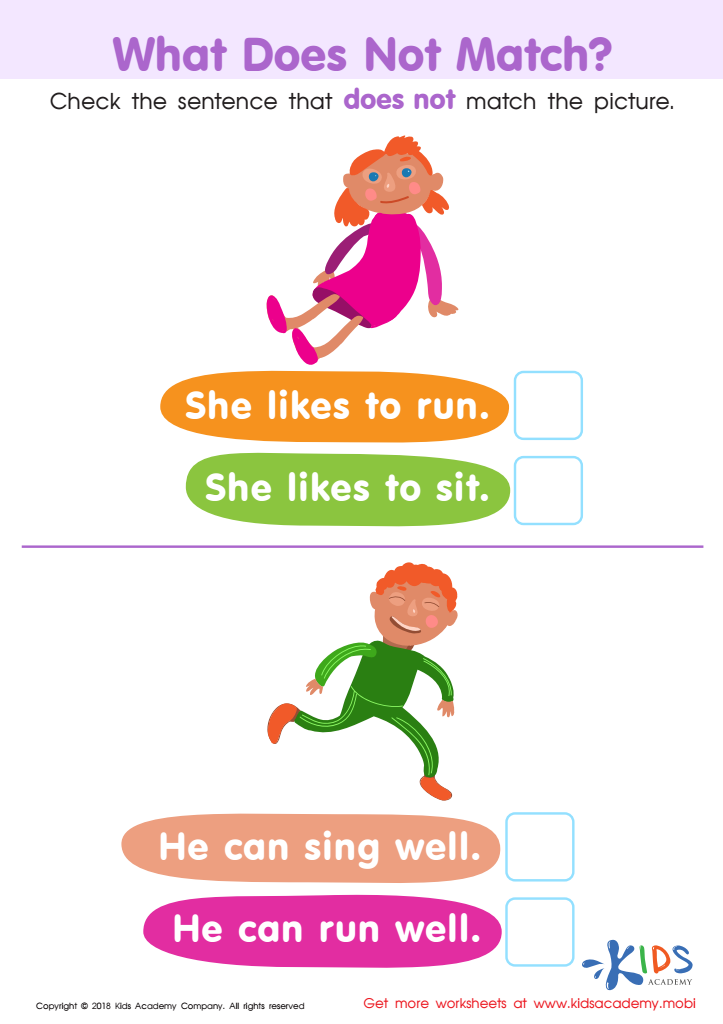Cognitive Development Reading Fiction Worksheets for Ages 5-8
5 filtered results
-
From - To
Explore our engaging "Cognitive Development Reading Fiction Worksheets" designed specifically for children ages 5-8. These worksheets aim to enhance critical thinking and comprehension skills through fun and relatable stories. Each worksheet encourages young readers to dive deeper into fiction, fostering their ability to analyze characters, predict outcomes, and comprehend essential themes. Perfect for both classroom and home use, these resources are tailored to accommodate various learning styles, ensuring that every child can thrive. Promote imaginative exploration and cognitive growth in your child today with our thoughtfully crafted worksheets that make reading an interactive and enriching experience!


Rhymes in Poems Worksheet


What Matches the Picture? Worksheet


Cities: Finding Differences Worksheet


Pre Reading Worksheet Guess My Name


What Does Not Match? Worksheet
Cognitive development in early childhood is critical, particularly during ages 5-8, a period marked by rapid growth in thinking and comprehension skills. Reading fiction helps enhance this cognitive development, making it essential for both parents and teachers to prioritize. Engaging with fictional narratives fosters imagination and creativity, allowing children to explore complex concepts and scenarios. This exploration strengthens their cognitive abilities, including problem-solving skills and critical thinking.
Fiction also enhances emotional intelligence by exposing children to diverse characters and their experiences, promoting empathy and understanding of different perspectives. When children read about various situations and emotions, they learn to navigate their own feelings and recognize those of others, leading to better social interactions.
Furthermore, story structures—like beginning, middle, and end—help develop sequential thinking and organizational skills. Literacy skills, such as vocabulary development and understanding context, are also nurtured through dialogue-driven narratives.
In short, reading fiction cultivates a range of cognitive skills that are vital for children's overall development and academic success. Parents and teachers should embrace storytime as a purposeful tool that enriches children's minds and prepares them for future learning experiences.
 Assign to My Students
Assign to My Students





















